Akora Khattak
اکوړه خټک | |
|---|---|
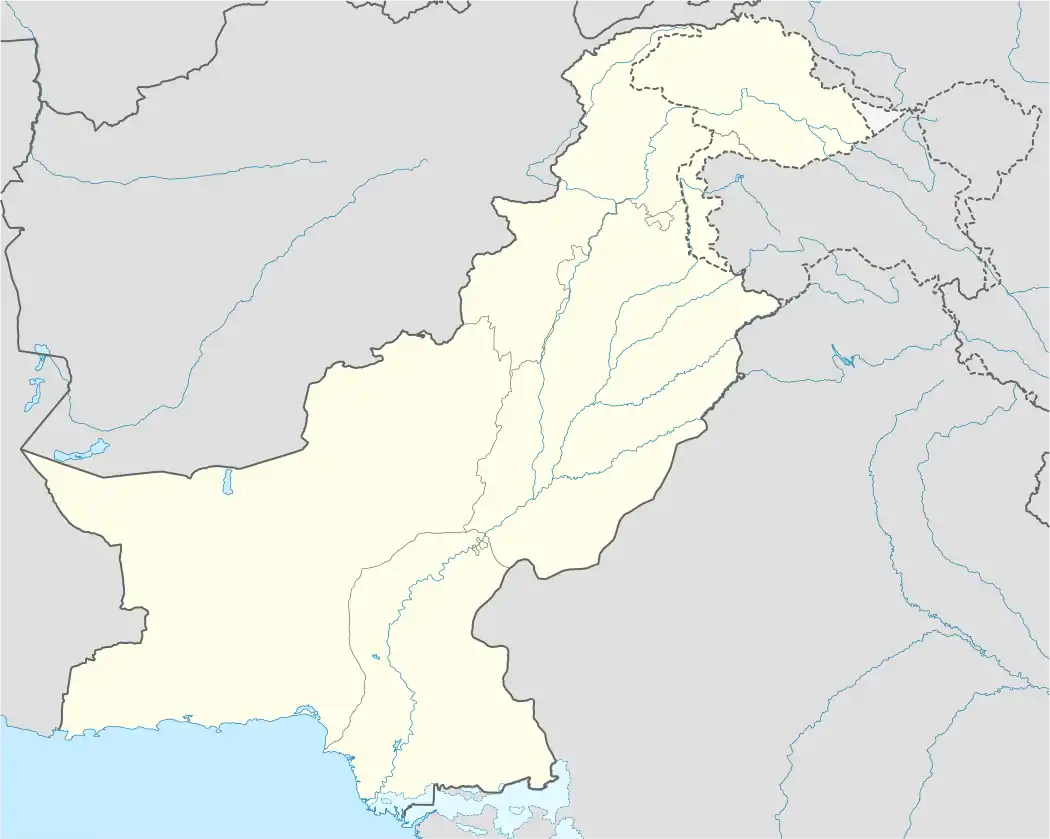 Akora Khattak 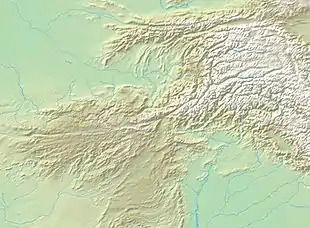 Akora Khattak 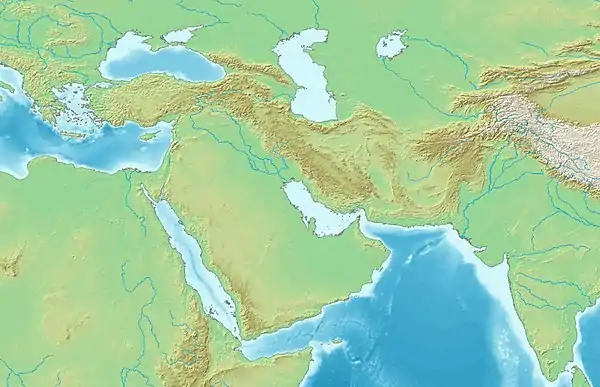 Akora Khattak | |
| Coordinates: 34°0′2.17″N 72°7′18.06″E / 34.0006028°N 72.1216833°E | |
| Country | Pakistan |
| Province | Khyber-Pakhtunkhwa |
| District | Nowshera District |
| Population (2017[1]) | |
| • Total | 47,255 |
| Time zone | UTC+5 (PST) |
Akora Khattak (Pashto: اکوړه خټک ⓘ, Urdu: اکوڑہ خٹک ⓘ) or Sarai Akora is a town in the Jehangira tehsil of the Nowshera District in the Khyber Pakhtunkhwa province of Pakistan.[2][3] Its location is adjacent to the Kabul River, which converges with the Indus River about 15 kilometres downstream. Neighbouring places are Nowshera Cantonment to the west and Jahangira town to the east.
Geography
Akora Khattak is about 14 km (9 miles) east of the Nowshera city in the Nowshera District on Grand Trunk Road.[2][4]
History
Akora Khattak was formerly called Sarai Akora. It is named after Malik Akor Khan Khattak, who was the great-grandfather of the famous Pashtun warrior and poet, Khushal Khan Khattak.[5]
In December 1826, The battle of Akora Khattak was fought between the Sikh Empire and Mujahideen, mainly Pashtuns, under Syed Ahmad Barelvi.[6] The 1500 Mujahideen defeated 4,000-strong Sikh army, killing between 500 and 700 Sikh soldiers.[6]
The British period starts from 29 August 1849. The cantonment of Akora Khattak was established in 1850. In 1916, the first police station was established.
Population
The population of Akora Khattak, according to the 2017 census, was 47,255. The population of Akora Khattak, according to the official censuses, over the years is shown in the table below.[7]
| Consensus Year | Population |
|---|---|
| 1961 | 7954 |
| 1972 | 11,191 |
| 1981 | 13,788 |
| 1998 | 19,530 |
| 2017 | 47,255 |
Notable places
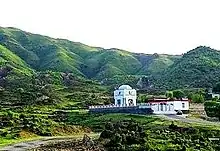
Tomb of Khushal Khan Khattak
Akora Khattak is the birthplace and burial place of the poet great Pashto poet and warrior Khushal Khan Khattak.[8][9] The mausoleum of Khushal Khan was built in 1949.[10]
Dar-ul-Uloom Haqqania

Darul Uloom Haqqania was founded by Maulana Abdul Haq (father of Maulana Sami Ul Haq) along with his companion Haji Mohammad Yousaf in 1947. It is the second largest Islamic religious seminary in Pakistan.[11]
Khushal Khan Khattak memorial library
Khushal Khan Khattak Memorial Library is a public library in Akora Khattak. The Library was established in 1994 in the memory of Khushal Khan Khattak. The museum has many medieval era artefacts, some of which were used by Khushal Khan Khattak.[5]
Education

Schools and colleges
- Govt Centennial Model high school (boys)
- Khyber Model College and School Akora Khattak Campus
- The student model high school and College
- Govt high school (boys) Baghbanpura
- Govt Girls Middle School Baghbanpura
- Sir Syed public High school
- Govt high school (girls)
- Haqqania High School
- Tamir-e-millat high school
- Public collegiate high school
- Bright Start English school
- Jamia Shams Ul Madaris Surya Khel for (boys and girls)
- Rahman public school
- Army Public school Akora Khattak
- The Sun Rise public school
- Govt Khushal Khan Khattak degree college (boys)
- Govt Khushal Khan Khattak college (girls)
- The Safah public school
- The Quaid Public School
- The Suffa Public School
- The Sarhad Public School Akora Khattak
- AIMS (Alqalam Islamic Model School)
- ummah higher secondary school soria khel akora khattak
Academies
- Umma Children Academy
- National Children Academy
- Scientific Learning tuition Academy Akora khattak
- The Aryana English Language & Computer Academy
- Jamal Ul Quran Online Academy
Institutes
- Shahcom Institute of Technology (Regd.)
- National Institute of Technology
Health care
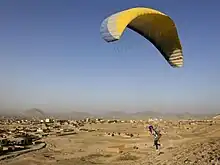
People from Akora Khattak
- Khushal Khan Khattak – warrior poet, chief, and freedom fighter
- Maulana Abdul Haq – Islamic scholar and founder of the Islamic seminary Darul Uloom Haqqania[11]
- Ajmal Khattak – politician and writer
See also
References
- ↑ "Area & Population of Administrative Units by Rural/Urban: 6th population 2017 Censuses". Archived from the original on 2017-10-15. Retrieved 2018-01-20.
- 1 2 Bergen, Peter; Tiedemann, Katherine (2013-02-14). Talibanistan: Negotiating the Borders Between Terror, Politics, and Religion. OUP USA. ISBN 9780199893096.
- ↑ "PESCO restores electricity in Nowshera City despite collapsed of 23 transmission towers". www.brecorder.com. Retrieved 2017-11-23.
- ↑ "Map from nowshera to Akora Khattak". Retrieved 2017-11-23.
- 1 2 "Remembering a revered poet: Ajmal Khattak, a proponent of peace - The Express Tribune". The Express Tribune. 2012-05-13. Retrieved 2017-11-23.
- 1 2 Singh, Rishi (2014-12-31). State Formation and the Establishment of Non-Muslim Hegemony: Post-Mughal 19th-century Punjab. SAGE Publications India. ISBN 978-93-5150-504-4.
- ↑ "Area & Population of Administrative Units by Rural/Urban: 1951-1998 Censuses (pdf)" (PDF). www.pbs.gov.pk. Retrieved 2017-11-24.
- ↑ Correspondent, A (2016-03-07). "Khushal Khan Khattak remembered". DAWN.COM. Retrieved 2017-11-23.
- ↑ "Apna Akora Khattak". www.apnaakorakhattak.com. Archived from the original on 2017-09-30. Retrieved 2017-11-23.
- ↑ Ali, Zulfiqar (2015-05-18). "Khushal Khan Khattak's mausoleum a shambles". DAWN.COM. Retrieved 2017-11-23.
- 1 2 Hussain, Zahid (2008-07-01). Frontline Pakistan: The Struggle with Militant Islam. Columbia University Press. ISBN 9780231142250.